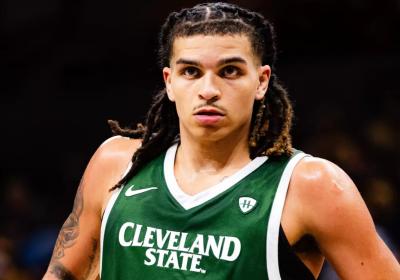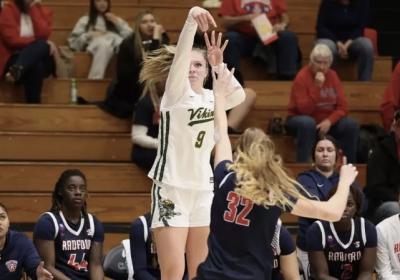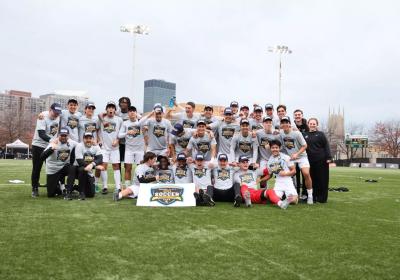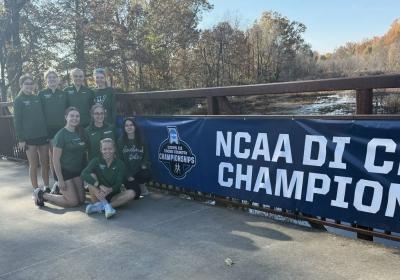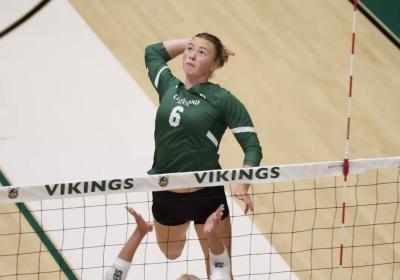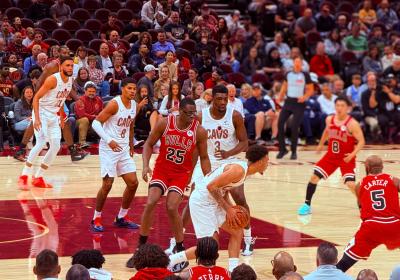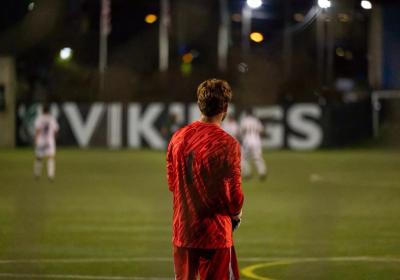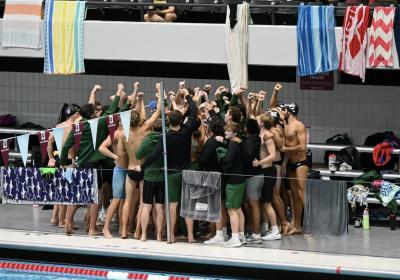
Athletics in a shut-down world: Training continues
(This story was written for Leo Jeffres’ Specialized Writing Class)
The recent stay-at-home orders around the country have forced many athletes of all levels to limit their training more than usual. For Cleveland State University senior Stevie Holbrook, that is no different. The women’s soccer goalie has had to find unique ways to train as facilities remain closed. While staying in shape has been difficult for Holbrook, she’s determined to remain focused for her last soccer season.
The drive from Cleveland to Huron for goalie trainings has become a habit as she is making the 40-minute drive twice per week to get some work with a coach who has access to a soccer field. Mixed in with that, she also spends her time lifting and running to be in the best shape she can.
Holbrook was lucky enough to find a place to train. Because of the lockdowns, most facilities have been closed for the better part of two months now, and athletes have been stuck without organized workouts and equipment for that same period. But even for Holbrook, it has not been nearly the same as her normal training.
“I’ve been doing goalie trainings a couple times per week as well as lifting and running ,” she said. “But it’s not the same as being in soccer shape.”
The NCAA also recently allowed for scholarships to be reduced below the required minimum, as well as delayed rule changes in five of its sports to try to combat the costs of the recent shutdowns. These changes come as a compromise to a proposal that could have seen some schools cut sports and drop below the minimum 14 in an attempt to save money.
###
There have been talks of modified seasons that could see competition without fans, a fact that Holbrook says would not affect her that much. But she also says that it would still be odd not having a couple of familiar faces in the stands cheering her on.
“Spectators have never made much of a difference to me, but what would be strange is not having my parents in the stands,” Holbrook said. ”I don’t think they’ve missed a game since I’ve been in college.”
The more serious effect on Holbrook would be the possible canceled season. After finishing her undergraduate degree this spring, she will enter her final year of eligibility while working on her graduate program, which would make it harder for her to compete and study. While the NCAA is likely to offer athletes an extra year of eligibility, it is a tough decision for retiring athletes to make to come back for an extra year.
“I think it would be great if [the NCAA] offered seniors an extra year of eligibility, but I’m not sure I would be able to take it with the course load of my graduate program,” Holbrook said. “Hopefully we have a season and not have to worry about it, but we’ll see.”
For now, Holbrook is remaining focused on the training she can do. While the twice per week goalie trainings, solo lifting sessions, and runs down to the pier are not up to her normal standards of training, she realizes that she has to do what she can to stay ready.

